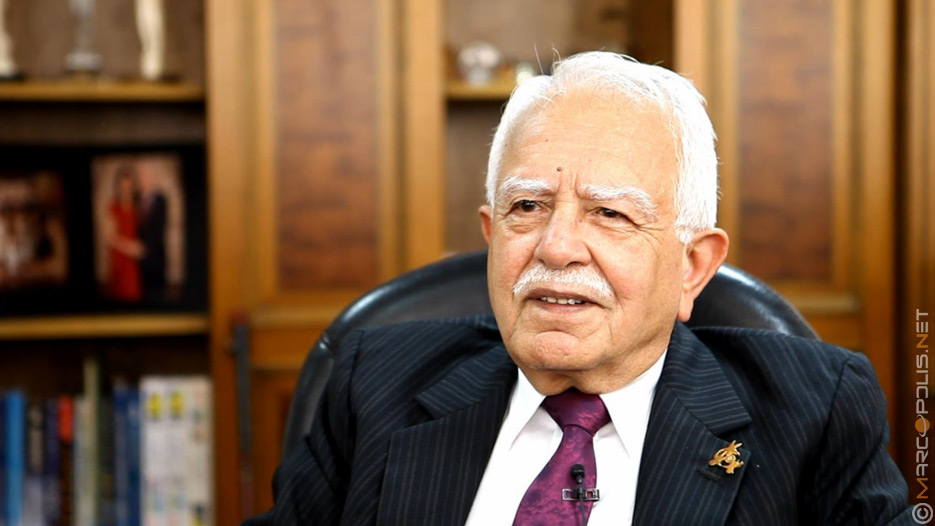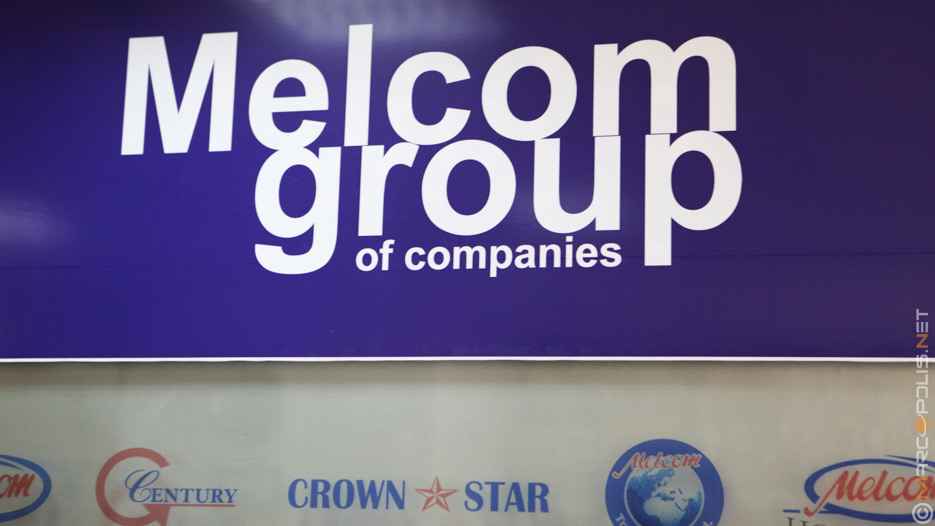Melcom Group, Ghana’s Retail Giant, Is Gearing Up for International Competition in Ghana
“Ghana has caught the attention of large European and American retail companies and the competition in the retail sector will indeed be fierce. We are gearing up for it. To start with, we have 35 branches throughout Ghana.”
Interview with Bhagwan Khubchandani, Chairman of Melcom Group

Ghana’s retail landscape is undergoing significant changes; clearly one of the trends is a shift towards cheaper consumer goods. In addition, international retail chains may take over the role of traditional markets. How is the current economic situation further affecting the retail industry in Ghana?
We are gearing up for a lot of competition from the big players. Ghana has caught the attention of large European and American retail companies and they are trying to create a presence over here. Some of them are already here but we expect a lot more. The competition in the retail sector will indeed be fierce. We are gearing up for it. To start with, we have 35 branches throughout Ghana. Anyone might think it is easy to replicate that but it is not. Even if you decide to open up a store, let’s say in a place like Wa or Bolgatanga you won’t find a big enough place to start with so you need to acquire a piece of land and build your own premises. That takes time: acquiring suitable land, making sure that the paperwork is correct and that you are the rightful owner of the property before you start developing, employing people and training them so that you can open a branch etc. It is not like in parts of the world where people open 15 branches in a month, over here there are constraints; you can’t do it that fast. Perhaps this is our biggest advantage.
What are the consumer trends this year in 2015?
It is changing from marketplace to shopping in shops. In olden days a customer would prefer to buy in the marketplace because you can haggle and customers love to haggle the price. They can’t do that in our stores because we have a fixed price policy. Now they realise that it is better to buy from a scheduled retailer; they may not get cheap but they will get quality for price rather than in the marketplace where they can sometimes get chiselled. The change is towards organised retail trade. We do still have the marketplace and it plays a very important role, especially for daily used items but also mostly for local food stuff. The marketplace is still being used but it is changing towards the organised retail trade.
Quite honestly we would love to be throughout West Africa. That is our forte.
Let’s now talk about Melcom Group. Aside from conquering an extensive retail market share with a network of 35 retail outlets spread all over Ghana the group has also diversified into other businesses and moreover you were ranked the second most valuable business brand in Ghana for 2013. How have you managed to capture the hearts of Ghanaians?
Basically we are retailers but by default we also do real estate because as I said we can’t always get a suitable shop where we would like to open our branch so we end up developing our own property. We also work in two industries, we have a travel agency and recently we started Melcom Hospitality which is in the food industry. Right now we have started with Baker’s Basket which is the brand of our own bread, cakes and cookies. We are hoping to be able to sell this throughout Ghana in the next couple of years. We are hoping to brand Baker’s Basket as Ghana’s favourite bread.
From plain and simple retail we are branching off to malls. We are also thinking of establishing saving and loans. We are already working in property but we want to go further whereby we build bigger malls, besides Melcom shops we also want to invite other service providers.

Talking specifically about the retail segment, how do you differentiate yourself from the increasing number of competitors? As you mentioned, there are new international chains coming in to Ghana, so how does Melcom stand out?
We have the advantage over them in that we know the local turf; we know the market over here. What colour, what size, what budget—you can have a can opener which can cost a retail price of 3 cedis or you can also have a can opener that can cost 30 cedis. It does the same job, only the appearance and quality of the material is different. We know our market, while others will have to find their way. They might think this is like Europe, they might import everything which is for a secondary to a high level place and they may find out that some customers can´t afford that. So we hope that we have an advantage over them when it comes to knowing the local market.
Are you planning on further network expansion in the near future?
In Ghana, yes we are. A few projects have already started. One is at Achimota, the others are at Weija and Koforidua. We also plan to open one and one more at Wa in the north eastern region of Ghana.
You noted that you are moving into hospitality and food production, could you talk about that in more detail?
That is one segment that we have identified where there is substantial growth year on year. Food is something we require three times a day so it is only natural that something we consume three times a day should be addressed and we hope to make juices, savouries, and maybe a few readymade food packages. We want to go into the food industry in a big way. It will take time but we hope to be there in a few years’ time.
On the group level, where do you see the group in one or two years’ time when we come back to interview you again?
Quite honestly we would love to be throughout West Africa. That is our forte. Our neighbours come and buy in Ghana sometimes so their likes and dislikes are really similar to the locals here. Since we know this market well it would be nice if we could spread throughout West Africa. It is on the cards but I don’t know when it will happen.
Do you have any particular markets that you would like to enter first?
The first on the list is probably Nigeria, being the biggest of the ECOWAS countries. Then maybe Freetown, Monrovia—these are English speaking countries where we feel more comfortable. Ivory Coast is a pretty big market too as is Guinea but they are French speaking and we feel more comfortable in English speaking countries.
What are the key initiatives run by the social and charity division, the Melcom Care Foundation? Melcom is indeed very strong in CSR.
Yes, my daughter is in charge of that and I encourage her with anything she comes up with or any idea that she feels would be an answer to the community’s needs. We go along with that because I think that in a place where you work and earn your living, it is only right that you give back part of what you earn. We are really keen on this.
Lastly, though born abroad you have spent most of your life in Ghana. What would be your personal message about this country?
First of all I would like to thank Ghanaians for allowing me to stay in their country and make use of their hospitality and for accepting me as one of them. I had even been to Ghanaian school here in 1951, so I really identify with the land here. My roots are here. I am Indian by birth but in every other way I can say that I am truly Ghanaian. I love this country and I hope to die here when the time comes.
What would you say to our international audience and investors?
I would tell them that Ghana is a lovely place to invest. We have a few issues like the frequent devaluation of the cedi that makes it difficult for business, and the frequent power cuts which means it is difficult to run businesses especially industries. However the government is working on these problems and Ghana being the friendly country that it is, the living conditions here are extremely good. Ghanaians by nature are very friendly and soft spoken. Anyone who is thinking of locating themselves in West Africa should look at Ghana. I would say it is certainly the place to be.